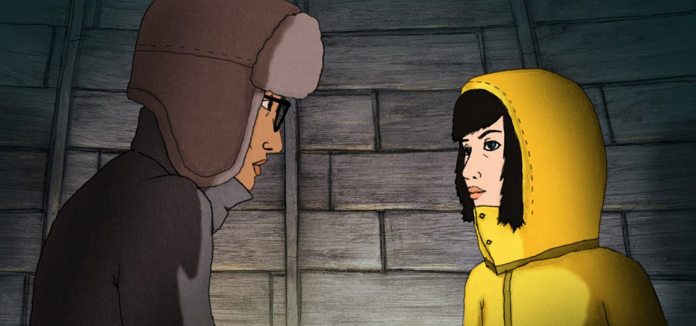In May, a French animated film about a hand debuted at this year’s Cannes Film Festival. Directed by Jérémy Clapin and co-written by Amélie screenwriter Guillaume Laurant, it became the first animated feature to win the Nespresso Grand Prize in International Critics Week. Since then, it was recognised at Annecy Animated Film Festival and more recently, this year’s London Film Festival.
I Lost My Body (original title: J’ai Perdu Mon Corps) follows a hand that ‘wakes up’ completely detached from its owner Naofel (Hakim Faris). As it ventures across the city to find its owner, it reminisces key moments of Naofel’s life and his tentative romance with librarian Gabrielle (Victoire Du Bois).

If you think that I Lost My Body is more like Thing in The Addams Family, think again. Rather than take a whimsical approach to complement its atypical protagonist, Laurant creates a narrative that is designed to tug on the heartstrings – unsurprising, as he wrote the original book Happy Hand. If the hand was a person, it doesn’t alter the emotiveness behind this tale of belonging and acceptance.
Amid the hand’s troubled journey, I Lost My Body‘s sporadic black and white flashbacks offer an insight into Naofel’s nurturing, uncomplicated childhood. Seemingly ordinary moments at home or on the beach provide nostalgia and an extra-sensory element that is more than just touch. But as Naofel’s life takes an unexpected turn, audiences are quickly taken out of this dream-like, simple monochrome existence into a coloured, chaotic reality.


As a grown-up, Naofel is a somewhat mundane character, whose sudden change of circumstances have made him seemingly lifeless. However, this all changes when he awkwardly meets Gabrielle, whose profound insight inspires him to find out more about her. He does this in an albeit creepy way but it speaks volumes to his need to be – and have – more in his life, as well as recoup the happiness he experienced as a child.
Clapin cleverly retains the focus of the narrative on this lone, intrepid hand to highlight its significance to Naofel’s life but how hands are a necessary part of everyday life. The animation is raw and simplistic and the dialogue comes from treasured memories and curt interactions by Naofel. The combination of the uncomplicated animation and minimal script ultimately enable the story and the characters to guide the audience on this adventure, which wonderfully offers a myriad of emotions considering its inexpressive protagonist – a hand.
Ultimately, the film is an allegory about what we, as a society, take for granted and what we can achieve without it. Poignant, heartbreaking and powerful, I Lost My Body is simple in its execution but its delivery makes it understatedly endearing.
‘I Lost My Body’ is in select cinemas on 22 November, before hitting Netflix on 29 November.


